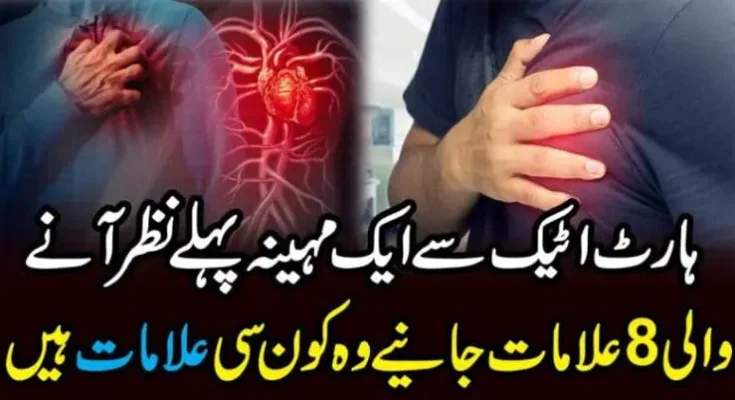8 Warning Signs of a Heart Attack
Welcome to this informative guide on the “8 Warning Signs of a Heart Attack.” Understanding the symptoms of a heart attack is essential for everyone, as early recognition and action can be life-saving. In this article, we will delve into “8 Warning Signs of a Heart Attack“. Each of these warning signs, providing expert insights and guidance on what to do if you or someone you know experiences them. By the end of this article, you’ll be well-equipped to respond to the signs of a heart attack confidently.
Chest Pain or Discomfort
Shortness of Breath
Shortness of breath, especially when it’s accompanied by chest discomfort, is another warning sign of a heart attack. You might feel like you can’t catch your breath, which can be a result of your heart’s inability to pump blood effectively.




Nausea and Vomiting
When a heart attack occurs, some people may feel nauseous and even vomit. It’s easy to mistake these symptoms for stomach problems. But they can actually signal a heart issue. If you experience unexplained nausea or vomiting. Especially when combined with other symptoms mentioned here. It’s important not to ignore them. These signs could be your body’s way of alerting you to a potential heart problem.
Lightheadedness or Dizziness
Cold Sweats
Unexplained cold sweats, often referred to as diaphoresis, can be a sign of a heart attack. Your body may produce sweat as a response to the stress a heart attack places on your body. If you break out in a cold sweat without a clear cause, don’t ignore it.
Fatigue
Extreme fatigue, unrelated to physical exertion, can be a subtle warning sign. If you find yourself inexplicably tired, it’s essential to consider that your heart might not be functioning correctly. It’s crucial not to disregard this symptom, especially if you are at risk for heart disease.
Pain in Other Areas
While chest pain is the most common symptom. Some heart attack victims experience pain in other areas, including the arms, neck, jaw, shoulder, or back. These pains may come and go or persist, and they can be intense. Any unexplained pain in these areas should not be taken lightly.
Anxiety
A sense of impending doom or anxiety can sometimes precede or accompany a heart attack. If you have a feeling of intense fear, worry, or discomfort, especially when combined with other symptoms. It’s crucial to seek medical assistance.
